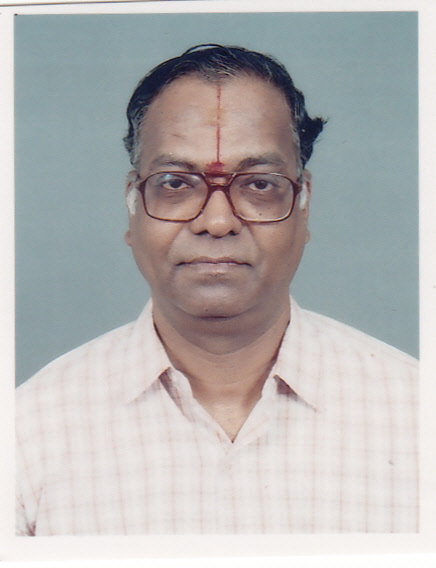| Discussions Forum | ||||||||
Home  Forum Forum  Central Excise Central Excise  This This 
A Public Forum.
Submit new Issue / Query
My Issues
My Replies
|
||||||||
Goods procured without payment of excise duty by following end use procedure, Central Excise |
||||||||
|
||||||||
Goods procured without payment of excise duty by following end use procedure |
||||||||
Dear Sirs, Our unit at Goa has procured the inputs under exemption from central excise duty from the supplier manufacturer by following the procedure prescribed under Central Excise (Removal of Goods at Concessional Rate of Duty for Manufacture of Excisable Goods) Rules, 2001. After using the certain quantity of said inputs in the manufacture of final product, they stopped producing such final product and the balance quantity of above inputs are lying in stock with them. As per proviso to Rule 6 of aforesaid rules, the surplus stock if any may be returned to the original manufacturer from whom the said inputs are obtained. But we want to divert the balance quantity of above inputs to our another unit at Hosur where such final product will be manufactured by using the same. Whether above such diversion is possible since all our manufacturing locations are coming under jurisdiction of LTU, Bangalore. Kindly enlighten your views on this issue at the earliest. Regards, K.G Subramanian e.mail ID: [email protected] Posts / Replies Showing Replies 1 to 4 of 4 Records Page: 1
Dear K .G. Subramanian, You may seek specific permission from the Jurisdiction Commissioner of Central Excise in this regard under LTU provisions read with Central Excise (Removal of Goods at Concessional Rate of Duty for Manufacture of Excisable Goods) Rules, 2001 as there is no other way out to this issue. Regards Team YAGAY and SUN (Management and Indirect Tax Consultants)
Dear Subramanian LTU has not yet geared-up with common registration. Department may not accept to transfer the inputs that are procured under chapter X procedures, as the registration of the GOA unit is different from the Hosur plant. Regards sreeman
Sir, According to rule 12 BB of Central Excise Rules, 2002, A large taxpayer may remove excisable goods, except motor spirit, commonly known as petrol, high speed diesel and light diesel oil (hereinafter referred to as the intermediate goods), without payment of duties of excise, under the cover of a transfer challan or invoice, from any of his registered premises, (hereinafter referred to as the sender premises) where such goods are produced, manufactured or warehoused to his other registered premises, other than a premises of a first or second stage dealer (herein after referred to as the recipient premises), for further use in the manufacture or production of such other excisable goods (hereinafter referred to as the subject goods) in recipient premises subject to condition that- Explanation 1. The transfer challan or invoice shall be serially numbered and shall contain the registration number, name, address of the large taxpayer, description, classification, time and date of removal, mode of transport and vehicle registration number, quantity of the goods and registration number and name of the consignee: Excise duty is payable on intermediate goods, namely, electronics goods, manufactured by factory A which are removed without payment of duties of excise for use in the manufacture of subject goods, namely, machines, in factory B of the large taxpayer. In case such machines are not exported or are removed without payment of duties of excise, then factory B shall pay duties of excise payable on the electronic goods so cleared along with interest: National Calamity Contingent duty is payable on intermediate goods namely, polyester yarn manufactured by factory A. Such yarn is removed without payment of duty of excise for use in the manufacture of subject goods, namely, grey fabrics in factory B of a large taxpayer, (on which such National Calamity Contingent duty is not payable), then factory B shall pay an amount equivalent to the National Calamity Contingent duty that would have been payable on the polyester yarn along with interest under 2[section 11AA] of the Act: Provided also that nothing contained in this sub-rule shall be applicable if the recipient premises is availing following notifications of Government of India in the Ministry of Finance (Department of Revenue), - Therefore in my opinion you can transfer the inputs obtained without payment of duty under Central Excise (Removal of Goods at Concessional Rate of Duty for Manufacture of Excisable Goods) Rules, 2001 to your another registered unit. You may send an intimation to the Commissioner of Central Excise, LTU, Bangalore regarding you intention.
Clearance of the said goods to your another unit is subject to satisfaction of sub rule 2 of rule 3 of the Central Excise (Removal of Goods at Concessional Rate of Duty for Manufacture of Excisable Goods) Rules, 2001. p Department and Audit may object to such goods at the Hosur unit, as these goods shall be received on an invoice issued by a sister concern. (Goa Unit.) Page: 1 Old Query - New Comments are closed. |
||||||||
 9911796707
9911796707

